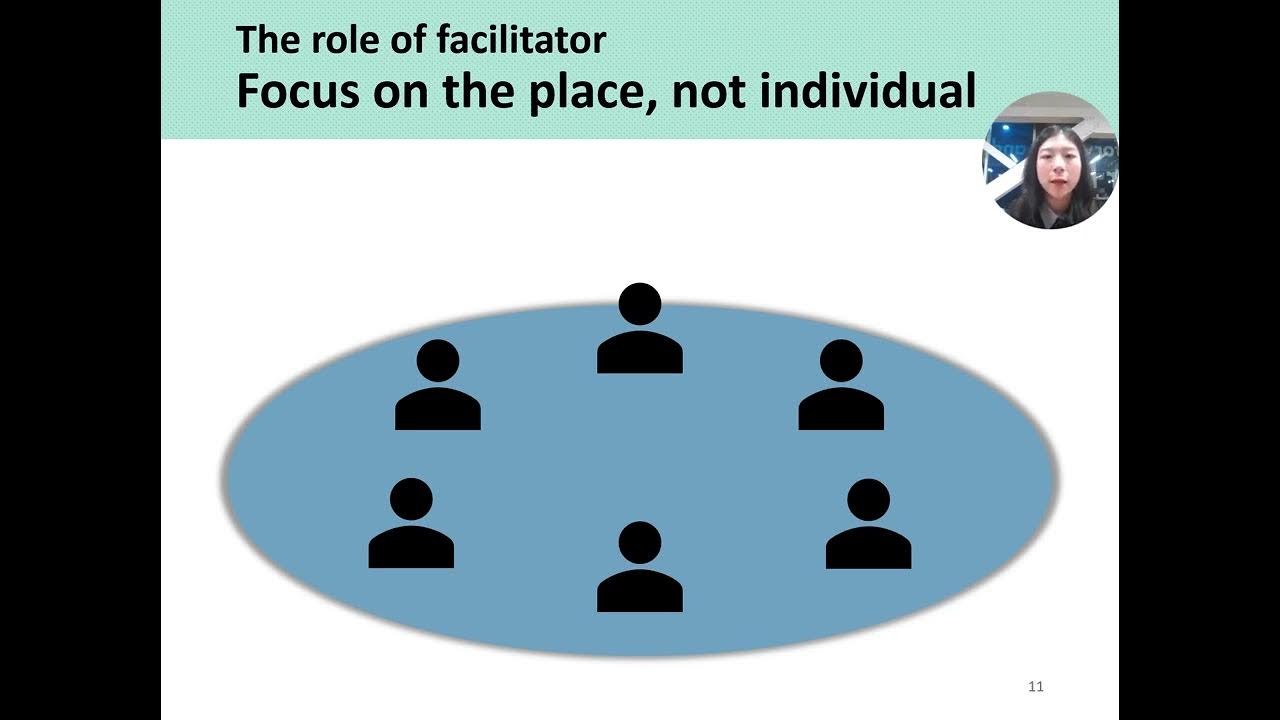What Does A Facilitator Do?
Summary
TLDRIn this video, the speaker, a facilitator with over 10 years of experience, explains the role of a facilitator, breaking down what they do and how they help teams achieve their goals. A facilitator designs and runs workshops to guide teams through problem-solving and decision-making processes, ensuring smooth, productive sessions. They offer frameworks and create an environment where participants can unlock their potential and contribute effectively. The video also discusses various types of facilitators, the skill's adaptability across industries, and how it can complement other professional expertise like product design or psychology.
Takeaways
- 😀 Facilitators use a set of skills to help groups achieve their objectives in a way that respects all contributions, builds ownership, and releases potential.
- 😀 A facilitator is someone who helps groups get things done by designing and running workshops to solve problems and make decisions in a smoother, calmer way.
- 😀 Facilitators are not necessarily consultants, though they may sometimes give advice. Their main role is to guide groups with frameworks for getting things done.
- 😀 A facilitator’s role can vary from leading leadership retreats, running workshops, retrospectives, or team-building exercises, to solving specific challenges with product teams.
- 😀 Facilitators help visualize data during workshops, making it easier for groups to make informed decisions.
- 😀 Facilitators provide a neutral role in group settings, stepping back to allow teams to unlock their ideas and superpowers rather than directly dictating solutions.
- 😀 There are different types of facilitators, including those in corporate environments (e.g., agile coaches or product managers), freelance consultants, and specialized facilitators.
- 😀 Many facilitators come from diverse backgrounds, such as product design, organizational psychology, and even industries like gaming or finance, making facilitation a versatile skill.
- 😀 Facilitators can add value to other professions by combining facilitation with their core expertise, like product design or psychology, increasing their flexibility and career opportunities.
- 😀 While facilitation is a soft skill, it can be learned with practice and knowledge. It is different from technical skills like programming, which require more time and effort to master.
Q & A
What is the primary role of a facilitator?
-The primary role of a facilitator is to guide a group through a process, helping them achieve their objectives in a smooth, calm, and collaborative way. Facilitators ensure that everyone contributes, builds ownership, and releases the potential of the group.
How does a facilitator differ from a consultant?
-A facilitator focuses on guiding the group through processes, offering frameworks and creating workshops for effective decision-making. A consultant, on the other hand, often provides direct advice or solutions to the group. While a facilitator might sometimes consult, their primary role is to assist in the process rather than to give solutions.
What types of sessions do facilitators typically run?
-Facilitators run a variety of sessions such as leadership retreats, product design workshops, team retrospectives, and innovation brainstorming. They can also work on product challenges, helping teams figure out the best course of action when there are many options.
What makes facilitation particularly useful in a corporate setting?
-Facilitation helps corporate teams work through complex challenges in a more structured and productive way. It ensures that the process is smooth and that all voices are heard, reducing tension and improving collaboration within the team.
How does a facilitator ensure that all team members contribute?
-A facilitator ensures all contributions are respected by designing workshops and activities that engage every participant. This process allows for a more inclusive environment where everyone's input is valued, leading to better outcomes.
Can facilitators specialize in specific areas?
-Yes, facilitators can specialize in different fields, such as product design, strategy, or specific industries like healthcare, government, or gaming. Specialization allows facilitators to bring more tailored and specific expertise to certain types of sessions.
What kinds of roles do facilitators typically take in organizations?
-Facilitators in organizations may hold roles like agile coaches, design thinking coaches, or even product managers. They help teams work more efficiently, facilitate conversations, and improve decision-making processes within the organization.
Can facilitation be applied outside of business environments?
-Yes, facilitation is a versatile skill that can be applied outside of business settings. For instance, facilitators may run team-building exercises, leadership retreats, or community events. It can also be used in non-profit organizations, education, and even personal development contexts.
How can someone become a good facilitator?
-To become a good facilitator, one needs to develop certain soft skills, like active listening, empathy, and the ability to guide group discussions effectively. It also helps to gain knowledge and practice in building workshops and structuring processes to achieve outcomes.
What are the benefits of adding facilitation to other skill sets?
-Adding facilitation to existing skill sets, like product design or psychology, enhances a professional’s ability to lead and guide groups in problem-solving. It opens up opportunities for more diverse work, higher earnings, and the ability to freelance or run workshops independently.
Outlines

此内容仅限付费用户访问。 请升级后访问。
立即升级Mindmap

此内容仅限付费用户访问。 请升级后访问。
立即升级Keywords

此内容仅限付费用户访问。 请升级后访问。
立即升级Highlights

此内容仅限付费用户访问。 请升级后访问。
立即升级Transcripts

此内容仅限付费用户访问。 请升级后访问。
立即升级5.0 / 5 (0 votes)






